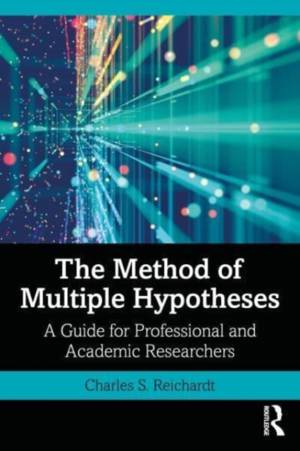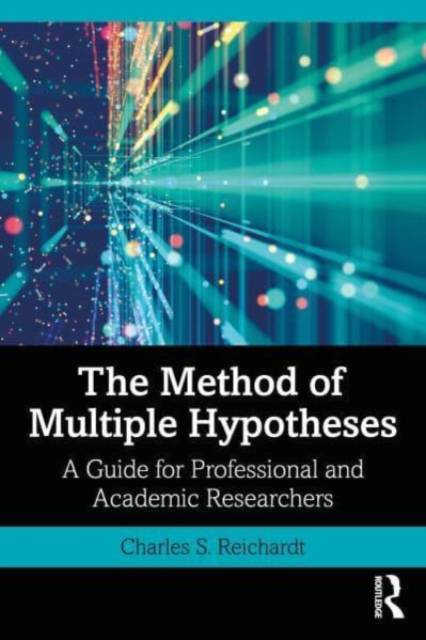
- Retrait gratuit dans votre magasin Club
- 7.000.000 titres dans notre catalogue
- Payer en toute sécurité
- Toujours un magasin près de chez vous
- Retrait gratuit dans votre magasin Club
- 7.000.0000 titres dans notre catalogue
- Payer en toute sécurité
- Toujours un magasin près de chez vous
The Method of Multiple Hypotheses
A Guide for Professional and Academic Researchers
Charles S ReichardtDescription
This book illustrates the method of multiple hypotheses with detailed examples and describes the limitations facing all methods (including the method of multiple hypotheses) as the means for constructing knowledge about nature.
Author Charles Reichardt explains the method of multiple hypotheses using a range of real-world applications involving the causes of crime, traffic fatalities, and home field advantage in sports. The book describes the benefits of utilizing multiple hypotheses and the inherent limitations within which all methods must operate because all conclusions about nature must remain tentative and forever subject to revision. Nonetheless, the book reveals how the method of multiple hypotheses can produce strong inferences even in the face of the inevitable uncertainties of knowledge. The author also explicates some of the most foundational ideas in philosophy of science including the notions of the underdetermination of theory by data, the Duhem-Quine thesis, and the theory-ladenness of observation.
This book will be important reading for advanced undergraduates, graduates, and professional researchers across the social, behavioral, and natural sciences wanting to understand this method and how to apply it to their field of interest.
Spécifications
Parties prenantes
- Auteur(s) :
- Editeur:
Contenu
- Nombre de pages :
- 102
- Langue:
- Anglais
Caractéristiques
- EAN:
- 9781032054605
- Date de parution :
- 21-10-21
- Format:
- Livre broché
- Format numérique:
- Trade paperback (VS)
- Dimensions :
- 156 mm x 234 mm
- Poids :
- 172 g

Les avis
Nous publions uniquement les avis qui respectent les conditions requises. Consultez nos conditions pour les avis.






